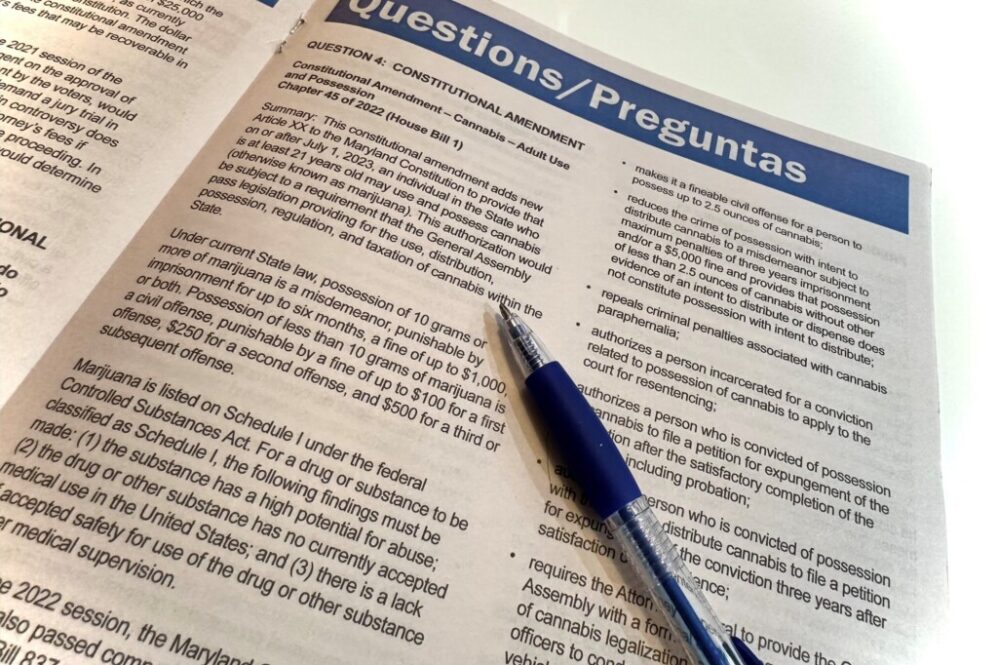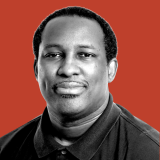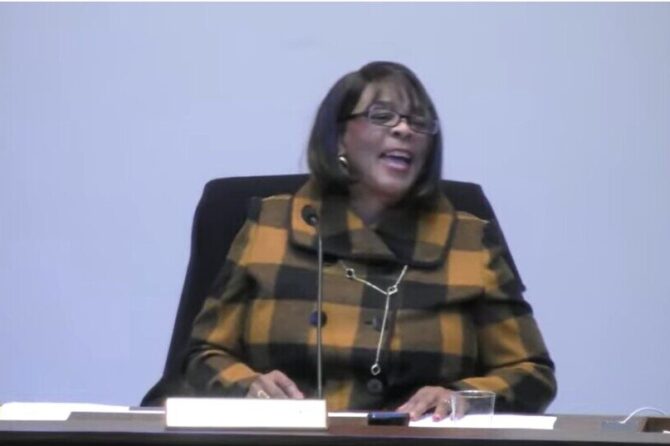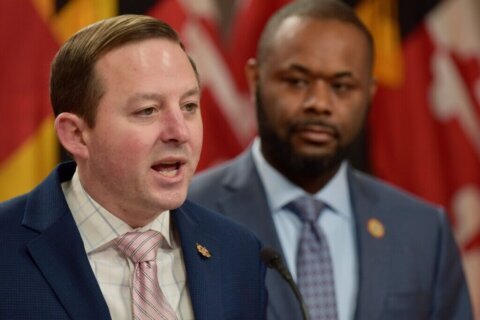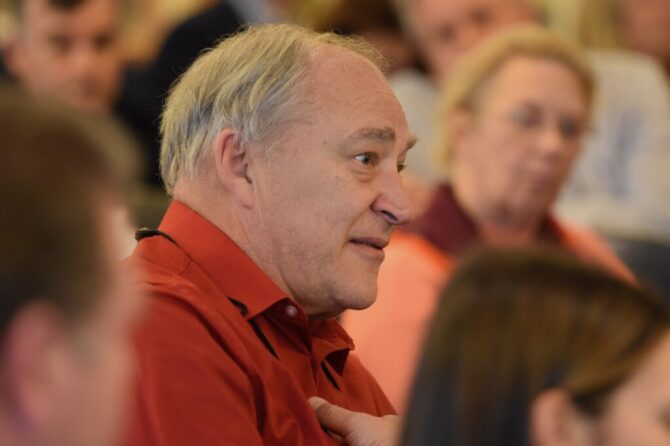MARYLAND MATTERS:
Common Cause Maryland is encouraging local officials to allow more young people to vote in local elections.
The nonprofit advocacy organization, based in Annapolis, posed a question in a recent mass email: “Do you agree with lowering the voting age to 16 for local elections so young people can have a say in the issues that directly impact them?”
Alyssa Canty, director of youth programs for Common Cause, said in an interview that most young people learn civics lessons as teenagers.
“Their dependency on local policies [for] public transportation, funding for their schools and all of those things [becomes more obvious to them] when they’re in high school,” she said. “It’s just really important for young people to really be a part of the decision-making process when it comes to things that affect them.”
This article is part of U.S. Democracy Day, a nationwide collaborative on Sept. 15, the International Day of Democracy, in which news organizations cover how democracy works and the threats it faces. To learn more, visit usdemocracyday.org.
Residents age 16 and 17 in the town of Somerset in Montgomery County will be permitted to vote in next year’s local election to select two councilmembers and the mayor.
Town Manager Matthew Trollinger said that 60% of residents approved of a non-binding referendum to lower the voting age this summer. One of the people who led to the effort to educate residents about the proposal was Amalia Leventon, now a high school senior.
Trollinger said the town plans to also establish a youth council by January.
“It serves a few purposes. One, to increase civic participation and understanding among the young people on municipal issues,” he said. “Then second, another outlet for young people to make their voices heard and bring issues of interest to the council.”
Voters in the city of Rockville, the county seat in Montgomery, will have a chance to decide on the November ballot whether to allow residents ages 16 and older to vote in local elections.
If voters say yes, then Rockville will join Somerset and the towns of Takoma Park and Chevy Chase, also in Montgomery County.
Although Angelina Xu won’t be able to vote in Rockville’s election because she turns 18 next year, she said teenagers can learn about voting while at home with parents or guardians, especially if they attend college in a different region or state.
“We trust teenagers to go on the road [and] drive. We trust them to apply for higher education and fill out the college application and make career decisions for themselves,” said Xu, 17, president of the Maryland Association of Student Councils and a senior at Richard Montgomery High School in Rockville. “The best way to help young Americans fulfill their civic duty is by giving them the resources at a younger age.”
Among Maryland’s 157 municipalities, seven allow 16- and 17-year-olds to vote in local elections, including Greenbelt, Hyattsville, Mount Rainier and Riverdale Park in Prince George’s County.
“They are voting for local officials [such as] mayor or council. These are people who you might run into at local coffee shops. These are people they can actually see out in the community and see the impact of policies [they approved],” said Hyattsville City Clerk Laura Reams. She’s worked in the city for about 10 years including when the voting age was lowered from 16 to 18 in 2015.
National movement?
According to the National League of Cities, Maryland, 17 other states and Washington, D.C., allow 17-year-olds to vote in statewide primary elections, if they will turn 18 by the general election.
Maryland, neighboring D.C., Virginia and 13 other states permit 16-year-olds to preregister to vote, according to the league of cities.
In California, elected officials in Oakland and Berkeley passed measures to allow those 16 and older to vote in school board elections. Young people are already voting in Berkeley, but it’s scheduled to happen in Oakland next year.
In June, Vermont’s legislature overrode a governor’s veto to allow 16- and 17-year-olds to vote in local elections in the town of Brattleboro.
The New Jersey Institute for Social Justice published a report Aug. 31 advocating for 16- and 17-year-olds to vote in local elections.
“Young people are affected by the same policies as adults, but have no say in deciding their representatives,” according to the document. “Everyone, including 16-year-olds, deserves the right to vote on issues that directly impact them.”
Generation Citizen, based in New York, supports having teenagers vote in local elections through a national campaign it organized known as Vote16USA.
Andrew Wilkes, chief policy and advocacy officer with Generation Citizen, said Maryland is leading “an emerging movement” to lower the voting age.
The state was fertile ground, as it was the first in the nation to create a service year program, some of its cities and towns have home rule authority and the University of Maryland in College Park led a study to mobilize voters 18 years old and younger.
“Maryland is just a stone’s throw from the nation’s capital. In some ways, we hope as Maryland goes so does the nation,” Wilkes said in an interview.
A commentary published in February by The Brookings Institution states those age 9 to 24 and millennials age 25 to 40 are poised to become the majority of potential voters in five years and to exceed 60% by 2036.
Their preference in the voting booth: the Democratic Party.
“Even worse for the GOP’s future, a majority of younger Republican voters are closer to the Democratic Party’s positions on these cultural issues than they are to their own party’s posture,” according to Brookings. “However, the Republican generational gap is not significant on economic issues. To take advantage of this potential opening with younger voters, the Republican Party would have to reverse their current emphasis on ‘wokeness’ and pound away on the country’s economic unease instead.”
Not logical?
Not everyone agrees that 16- and 17-year-olds should vote.
“I’m personally opposed to lowering the voting age in any capacity,” Sen. Jason Gallion (R-Harford and Cecil) said in an email Sept. 7. “While some 16-year-olds are fully capable of casting an informed vote, I believe waiting until 18 allows them extra time to go through important life experiences and learn to think more critically and independently before casting an informed vote.”
During some public safety discussions in Annapolis, House Minority Leader Jason Buckel (R-Allegany) said some of his Democratic colleagues claim juveniles, including young adults in their 20s, “allegedly don’t have the ability to make decisions about right or wrong when it comes to criminal acts.”
“People in the majority party in Annapolis who stand up and say that [juveniles’] brains aren’t fully formed, their emotions aren’t under control, they’re not mature enough to appreciate their actions when they shoot someone, or stab someone, or hurt someone. I find that hard to juxtapose against someone who says they should have the right to vote,” said Buckel, who serves on the House Ways and Means Committee, which reviews legislation on elections and voting.
Buckel continued: “I get the concept. We want to get young people enthused and let people vote. But at the end of the day, I just think it’s completely illogical to suggest that someone who the law bars from a wide variety of activities and rights that are constitutionally protected when you’re an adult, but we’re going to extend constitutional voting rights to a minor. It’s an idea that really doesn’t have a lot of logical sense.”
Sen. Cheryl Kagan (D-Montgomery), who represents Rockville and supports the city’s measure to lower the voting age to 16, recalled when she was a child and accompanied her mother to watch her cast a ballot.
“That sort of early imprinting has stayed with me. Engaging our young people who are passionate about many policy issues will set them on a path as lifelong voters,” she said. “Allowing young people’s voices to be heard is reasonable and makes sense.”
Eneanya Obioha, 17, a high school senior from Howard County, supports letting 16- and 17-year-olds vote in local elections.
Obioha, who leads Youth for Joe Biden in the state, said teenagers in her age bracket should also be allowed to vote in county-wide elections for school boards, county councils and county executive “because those roles impact teens. Our voices aren’t really being heard as much.”


